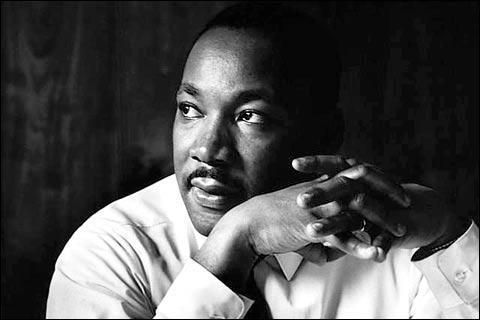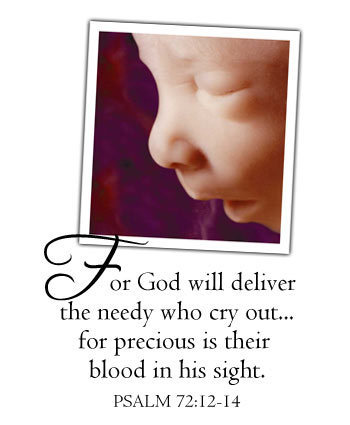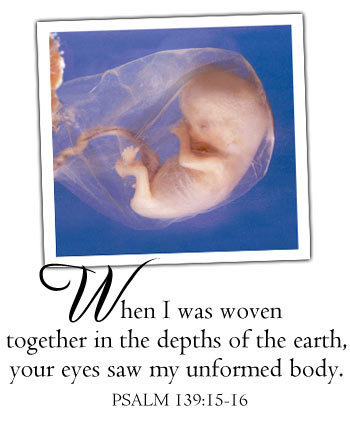Randy Alcorn's Blog, page 207
October 10, 2012
Election 2012, Part 1: Racial Issues, Helping the Poor and Financial Responsibility
 I have postponed writing about this election because I feel at a loss as to what to say or how best to say it. Reluctantly, now that the election is only four weeks away, I’ve decided to give it a try. (I may regret it, and you may too.) This will be part one of several, each on different issues. I’m not sure how many blogs there will be, only that they will mercifully stop before the election.
I have postponed writing about this election because I feel at a loss as to what to say or how best to say it. Reluctantly, now that the election is only four weeks away, I’ve decided to give it a try. (I may regret it, and you may too.) This will be part one of several, each on different issues. I’m not sure how many blogs there will be, only that they will mercifully stop before the election.
Honestly, I am deeply concerned about this election, but not excited about it. I have very little faith in politics. Republican and Democratic administrations have combined together in the last forty years to establish a staggering track record of economic, personal and moral irresponsibility. They’ve proven themselves poor stewards of our country. And in many ways we have proven ourselves poor citizens and stewards.
Trust me, there will be something in this series of blogs to offend everyone—Republicans and Democrats, conservatives and liberals, supporters of both President Obama and Mitt Romney.
As I’ve said before, I have no desire to try to be either conservative or liberal (see Conservative, Liberal or Christian?). I just want to follow Christ. Doing so sometimes causes me to be conservative (such as conserving the right to life) and sometimes liberal (such as liberating us from racial and gender injustices).
 When I was an eighth grader, my father was a tavern owner, we didn’t attend church and I knew nothing of Christ. Martin Luther King was assassinated in April 1968. The month after King was killed, I went door to door, with friends and a teacher, passing out literature in support of Robert F. Kennedy’s bid for the presidency, particularly because of his emphasis on racial equality. Only two months after King’s death, in June 1968, RFK was murdered. I was devastated, knowing nothing of creation and sin, curse and fall, or the redemptive work of Christ, only that two heroes had been slain. I believed in King’s and Kennedy’s advocacy of racial equality and civil rights, and could not understand people who hated what was right.
When I was an eighth grader, my father was a tavern owner, we didn’t attend church and I knew nothing of Christ. Martin Luther King was assassinated in April 1968. The month after King was killed, I went door to door, with friends and a teacher, passing out literature in support of Robert F. Kennedy’s bid for the presidency, particularly because of his emphasis on racial equality. Only two months after King’s death, in June 1968, RFK was murdered. I was devastated, knowing nothing of creation and sin, curse and fall, or the redemptive work of Christ, only that two heroes had been slain. I believed in King’s and Kennedy’s advocacy of racial equality and civil rights, and could not understand people who hated what was right.
Back then I was unaware of the much longer history of the Republican Party being the party of minorities. The following is drawn from the article “When Did the GOP Get So White? The Republicans’ Loss of Diversity.”
The first popularly elected African-American senator was a Republican, Ed Brooke from Massachusetts, in 1966. Likewise the first Asian-American senator, Hawaii’s Hiram Fong, who was first elected in the Eisenhower era. The first Native-American senator was Charles Curtis—who went on to be Herbert Hoover’s vice president. The first Hispanic senator, Octaviano Larrazolo, also was a Republican. Ditto the first woman popularly elected to the Senate, Maine’s Margaret Chase Smith.
The Republican Party was the party that gave hope and inspiration to minorities—and there was a coalition at first,” says Ed Brooke, now 92 and living with his wife, Anne, in Miami. “My father was a Republican. My mother was a Republican. They wouldn't dare be a Democrat. The Democrats were a party opposed to civil rights. The South was all Democratic conservatives. And the African-American community considered them the enemy.
…Every single one of the 23 African-American members of Congress before 1900 was a Republican. They wouldn’t have dreamed of being anything other than members of the Party of Lincoln—Democrats were the party of the Confederate South. Frederick Douglass summed up the sentiment when he said, “I am a Republican, a black, dyed-in-the-wool Republican, and I never intend to belong to any other party than the party of freedom.” This legacy echoed for generations.
The Republican Party today should continue to expand its racial borders and seek to recover what made it the party of Lincoln. On the other hand, I think the Democratic Party should be careful not to try to “buy” minorities through offers of financial incentives. Both parties should seek to win minorities over, as with people of every color, by sound and responsible philosophies and policies.
As for government helping the poor, Psalm 72 begins with a prayer for kings, which today might apply to our political leaders: "Give the king your justice, O God, and your righteousness to a king's son. May he judge your people with righteousness, and your poor with justice. May the mountains yield prosperity for the people, and the hills, in righteousness. May he defend the cause of the poor of the people, give deliverance to the needy, and crush the oppressor.”
I am in favor of the U.S. government using tax revenues to help some of the poor. However, I am not in favor of government giving tax revenues to all of the poor. To understand why not, here’s an excerpt from my book Money, Possessions and Eternity:
Are We Helping or Subsidizing the Poor?
 The worst thing we can do to the poor is ignore them. The next worst thing is to subsidize them—that is, to help them only enough to keep them alive, but not enough to assist them in developing the means by which they might move out of poverty. The poor are frequently lumped together into one group, as if they’re all the same. They aren’t.
The worst thing we can do to the poor is ignore them. The next worst thing is to subsidize them—that is, to help them only enough to keep them alive, but not enough to assist them in developing the means by which they might move out of poverty. The poor are frequently lumped together into one group, as if they’re all the same. They aren’t.
Neither Scripture nor experience indicate that all poor people are poor for the same reasons. Consequently, they cannot be truly helped by the same means.
A person may be poor for any one or a combination of the following ten reasons: insufficient natural resources; adverse climate; lack of knowledge or skill; lack of needed technology; catastrophes, such as earthquakes or floods; exploitation and oppression; personal laziness; wasteful self-indulgence; religion or worldview; and personal choices by some to identify with and serve the poor.
So when we say, “This is what we should do to help the poor,” it’s like saying, “This is what we should do to cure sickness.” To be effective, cures must be sought and applied for specific diseases, not for “sickness” in general.
If people are poor because their homes and businesses have been wiped out in a flood, the solution may be to give them the money, materials, and assistance to rebuild their homes and reestablish their businesses. And to work alongside them in rebuilding, as many churches did after Hurricane Katrina.
If they’re poor because of insufficient natural resources or adverse climate, we can share the knowledge, skills, and technology necessary to help them make the best of their situation. If this is impossible, we could help them relocate.
If people are poor due to oppression or injustice in our nation, then we can do what we can to remove or mitigate the oppression.
A person may also be poor because of self-indulgence. “He who loves pleasure will become poor” (Proverbs 21:17). Someone may make a decent income but waste it on drugs, alcohol, cigarettes, expensive convenience foods, costly recreation, or gambling (including lotteries). Some people manage to meet their family’s needs on very low incomes. Others make several times as much money, but are always in a financial crisis, because they’re living irresponsibly.
I’ve seen people who perpetually have no money to buy groceries for their family, who are on food stamps, but own nice cars, smart phones, computers and expensive home entertainment centers. The government may consider this poverty, but it certainly is not. Such a person needs only to make wise spending decisions in order to feed his family, then learn to live within his means.
I know personally people whose lives have been utterly ruined because tax-funded social programs taught them they could get by without even trying to work. I know others who have been greatly helped by tax-funded programs to get back on their feet and assume a responsible role in society, to the extent that their health permits.
Finally, a person may be poor due to laziness. God’s Word explicitly says that the result of laziness will be poverty (Proverbs 24:30-34). “Lazy hands make a man poor, but diligent hands bring wealth” (Proverbs 10:4). “A sluggard does not plow in season; so at harvest time he looks but finds nothing’ (Proverbs 20:4). “The fool folds his hands and ruins himself” (Ecclesiastes 4:5). Ultimately, the lazy man is poor by choice.
We shouldn’t rescue lazy people from their poverty. Every act of provision removes their incentive to be responsible for themselves. Paul commands the Thessalonian church to stop taking care of the lazy and reminds them of the rule he issued when present with them: “If a man will not work, he shall not eat” (2 Thessalonians 3:10). In other words, it’s a sin to feed the lazy. The point is not to let people starve; the point is that people who are faced with starvation will be motivated to work and support themselves as God intended. As it says in Proverbs 16:26, “The laborer’s appetite works for him; his hunger drives him on.”
Any system that feeds the lazy is a corrupt system. It does them and the rest of society a grave disservice.
Of course, someone can be unemployed without being lazy! We need to help the unemployed, but all the while we need to help them find work. When employment isn’t to be found, we need to provide it however we can. Franklin Roosevelt had the government pay people to work, not pay them not to work.
If money steadily comes in to the able-bodied person who isn’t working, then money becomes disassociated from work. Such people come to believe that society owes them provision—which further encourages laziness and the destruction of self and family. A nation, social service organization, church, party or individual that subsidizes the lazy spawns laziness. Rather than eliminating poverty, they perpetuate it.
The question is not simply, “What shall we do for the poor?” but “Which poor?” The truly poor should be helped. But they must be helped thoughtfully and carefully, according to the fundamental reasons for their poverty and according to their long-range best interests.
Okay, this is Randy live again, not from the book. :) You must answer, which candidate, Barack Obama or Mitt Romney, strikes you as being able to both care for the poor who truly need help, and able to implement policies that stop giving tax monies to able-bodied people who are lazy and unmotivated.
 Some words on financial responsibility: In my opinion, we are in deep trouble as a nation due to the extent of our national debt. Scripture says, “The borrower is servant to the lender” (Proverbs 22:7). This means among other things that we are in servitude to China and Japan, both of whom we owe over one trillion dollars.
Some words on financial responsibility: In my opinion, we are in deep trouble as a nation due to the extent of our national debt. Scripture says, “The borrower is servant to the lender” (Proverbs 22:7). This means among other things that we are in servitude to China and Japan, both of whom we owe over one trillion dollars.
We are passing this debt on to our children and grandchildren, and we desperately need someone in the White House who will keep his promises to halt the debt spiral. Four years ago President Obama promised he would cut it in half, but it has continued to rise. However, both Republicans and Democrats are guilty. The debt was held in best control under the Clinton Administration, whereas under both George Bush and Barack Obama it has skyrocketed.
Who strikes you as being more financially responsible, Barack Obama or Mitt Romney? Try to figure out the philosophies that each is embracing, and what effect you think their differing philosophies would have on our national debt and the future servitude of our nation and its children.
In summary of these three areas, as you look at the presidential candidates, ask yourself, are both committed to racial equality? Is one less likely than the other to engage in racial baiting, thereby fueling racism? Is one more likely to help the honest poor in the most constructive ways, but not undiscerningly distribute tax monies in the worst and most destructive ways? Will one more wisely steward tax revenues, reward hard work and promote financial responsibility?
As the Knight said in Indiana Jones and The Last Crusade, “Choose wisely.” And as he also said, in this nine second clip:

October 8, 2012
Enjoying Rest, Now and in the Life to Come

When God created the world, he rested on the seventh day (Genesis 2:2). That’s the basis for the biblical Sabbath, when all people and animals rested (Exodus 20:9-11). God set aside days and weeks of rest, and he even rested the earth itself every seventh year (Leviticus 25:4-5). This is the rest we can anticipate on the New Earth—times of joyful praise and relaxed fellowship.
Our lives in Heaven will include rest (Hebrews 4:1-11). “‘Blessed are the dead who die in the Lord from now on.’ ‘Yes,’ says the Spirit, ‘they will rest from their labor, for their deeds will follow them’ ” (Revelation 14:13).
Eden is a picture of rest—work that’s meaningful and enjoyable, abundant food, a beautiful environment, unhindered friendship with God and other people and animals. Even with Eden’s restful perfection, one day was set aside for special rest and worship. Work will be refreshing on the New Earth, yet regular rest will be built into our lives.
Part of our inability to appreciate Heaven as a place of rest relates to our failure to enter into a weekly day of rest now. By rarely turning attention from our responsibilities, we fail to anticipate our coming deliverance from the Curse to a full rest.
 “Make every effort to enter that rest” (Hebrews 4:11). It’s ironic that it takes such effort to set aside time for rest, but it does. For me, and for many of us, it’s difficult to guard our schedules, but it’s worth it. The day of rest points us to Heaven and to Jesus, who said, “Come to me, all you who are weary...and I will give you rest” (Matthew 11:28).
“Make every effort to enter that rest” (Hebrews 4:11). It’s ironic that it takes such effort to set aside time for rest, but it does. For me, and for many of us, it’s difficult to guard our schedules, but it’s worth it. The day of rest points us to Heaven and to Jesus, who said, “Come to me, all you who are weary...and I will give you rest” (Matthew 11:28).
What feels better than putting your head on the pillow after a hard day’s work? (How about what it will feel like after a hard life’s work?) It’s good to sit back and have a glass of iced tea, feel the sun on your face, or tilt back in your recliner and close your eyes. It’s good to have nothing to do but read a good book or take your dog for a walk or listen to your favorite music and tell God how grateful you are for his kindness. Rest is good. So good that God built it into his creation and his law.
Some people thrive on social interaction; others are exhausted by it. Some love solitude; others don’t. On the New Earth, we’ll likely all welcome the lively company of others but also crave times of restful solitude. We’ll enjoy both.
We catch glimpses of being able to enjoy both work and rest at once. I used to feel this when body, mind, and the beauty around me sometimes “kicked in” on a ten-mile run. I’ve experienced the same thing bicycling, when I’ve felt I could ride forever and the pedaling I was doing was part of a great rest. I can be working intently at something I love yet find the work restful and refreshing.
God rested on the seventh day, before sin entered the world. He prescribed rest for sinless Adam and Eve, and he prescribed it for those under the curse of sin. Regular rest will be part of the life to come in the new universe. (Wouldn’t it be wise to learn how to rest now?)

October 5, 2012
The Hardest Lesson
 When I was seventeen years old and had known Christ for less than two years, I experienced what I believe was a miracle. Driving at fifty miles an hour, I was about to crash. All I could see in front of me, top to bottom and side to side, was the yellow of a school bus, which pulled in front of me from a side road, but which I didn’t see until a split second before impact.
When I was seventeen years old and had known Christ for less than two years, I experienced what I believe was a miracle. Driving at fifty miles an hour, I was about to crash. All I could see in front of me, top to bottom and side to side, was the yellow of a school bus, which pulled in front of me from a side road, but which I didn’t see until a split second before impact.
But the impact never happened. My tiny Hillman Minx car should have smashed into that bus. I still can’t explain why it didn’t, and why instead my car ended up slowing to a stop in a cauliflower field, undamaged.
I was deeply grateful, of course, and am to this day. God was faithful, God was gracious, God saved my life. All that is true.
But I soon discovered things don’t always turn out that way for God’s children.
A few months later my good friend Greg Coffey, who had come to faith in Christ just a year before, had a terrible accident. Smart and athletic and with a promising future, Greg was swinging on a big tree branch, over a fence. The branch broke, and he was impaled upon a metal fence post. I sat on the floor outside intensive care, begging God to save Greg’s life.
When a nurse let me into his room, I saw my friend fighting for his life. I was convinced it could not be God’s will for him to die. He was growing closer to God every day, studying God’s Word, sharing his faith. Greg had a bright future in God’s service. I knew God would heal him. I couldn’t have been more certain; I’ve never had greater faith.
Two days later Greg died.
I was stunned, in disbelief. How could this happen?
Couldn’t the same God who kept me from smashing into that school bus have kept that tree limb from breaking, kept Greg from falling on that metal post? If God appointed angels to preserve my life, why didn’t he appoint angels to preserve Greg’s life?
Sometimes we make the foolish assumption that our heavenly Father has no right to insist that we trust him unless he makes his infinite wisdom completely understandable to us. What we call the problem of evil is often the problem of our finite and fallen understanding. It was the hardest lesson I’d ever had to learn.
 Gregory Boyd writes, “It’s very difficult to see how some of the more horrendous episodes of evil in this world contribute to a higher good.” His conclusion is, therefore, that they don’t.
Gregory Boyd writes, “It’s very difficult to see how some of the more horrendous episodes of evil in this world contribute to a higher good.” His conclusion is, therefore, that they don’t.
I agree “it’s very difficult to see.” It may well be impossible to see. But the question isn’t whether we can see it but whether God can do things we cannot see.
Not only Scripture but human experience sometimes testifies to the surprising good God can bring out of evil and suffering. God calls upon us to trust that he’ll work all evil and suffering in our lives for good. We can learn to trust God in the worst of circumstances, even for what we cannot currently see—indeed, that’s the very nature of biblical faith (see Hebrews 11:8, 13, 27, 32–39).
We’re not positioned to know how much suffering is required to accomplish the best eternal purposes, nor how much it might hinder those purposes for God to make himself obvious.
Is it possible that all past, present, and future suffering is somehow necessary for God to accomplish the greater good his people will enjoy for all eternity? If you think this cannot be the case, why? If you’re certain it can’t be, have you never been wrong?
Philosopher Thomas Morris writes,
Many times... people don’t have a clue as to what exactly they would do about the most pressing problems of their own city if they were mayor, or concerning the greatest difficulty facing their state if they were governor. They would probably be quite hesitant if asked how, precisely, they would solve the greatest national crises if they were president, but they have no hesitation whatsoever in venturing to declare how they would solve what may be the single most troubling cosmic religious problem if they were God.
We who have not formed galaxies and quasars and fashioned worlds shouldn’t be so quick to tell God how to run his universe.
In our times of suffering, God doesn’t give answers as much as he gives himself. And already, in the Bible, he has revealed more than enough of himself to give us solid reasons for faith—yet not enough to make our faith unnecessary.

October 3, 2012
Shouldn’t we care about other social injustices besides abortion?
It bothers me when there is so much talk about abortion. I’m prolife, but what about all the innocent children killed in war, those who die of malnutrition, those who are being abused, etc.? Shouldn’t Christians be just as concerned about these living children?
(I’m including the 9-minute video answer to this question at the bottom of my post. However, the transcript has been edited and added to, so feel free to watch the video but I’d encourage you to start by reading the written version.)
 This is a good question. However, I admit I’ve been asked something similar so often that I cringe a bit when I see it, and here’s why: I think people are creating an artificial distinction because they feel that whenever you talk about one social evil and injustice, you are obligated to list every other one. I don’t agree with that. And I don’t appreciate the fact that this is seldom done with other injustices, but is routinely done with abortion. (Though I’ve often spoken about other injustices, whenever I address abortion I get multiple comments from people asking why I’m not addressing other problems.)
This is a good question. However, I admit I’ve been asked something similar so often that I cringe a bit when I see it, and here’s why: I think people are creating an artificial distinction because they feel that whenever you talk about one social evil and injustice, you are obligated to list every other one. I don’t agree with that. And I don’t appreciate the fact that this is seldom done with other injustices, but is routinely done with abortion. (Though I’ve often spoken about other injustices, whenever I address abortion I get multiple comments from people asking why I’m not addressing other problems.)
When I see people concerned about the horrors of child abuse, or the selling of children into sexual slavery, it never occurs to me to say, “Now, wait a minute! Why aren’t you talking about abortion?”
Certainly it’s okay for different people to have certain burdens on their heart. Of course, I hope those people are concerned about abortion too. But do I expect them to talk as much about abortion as they do about sex trafficking? No, of course not. What about people who are concerned about malnutrition and childhood diseases? What about hunger? What about poverty in underdeveloped countries? Do I go to the relief organizations and say, “Well, wait a minute! You didn’t say anything about abortion!” No. I don’t assume someone’s a hypocrite just because they’re talking about one group of needy children and not another. Good for them that they’re speaking up for whomever God has laid on their hearts. Now, sometimes these groups are somehow justifying abortion, or have policies that are promoting abortion. Sometimes they support Planned Parenthood, a group which makes 51% of its income from performing abortions. In those cases, it needs to be addressed. But I would never criticize someone for speaking up more for some needy people than others.
It reminds me of a time several years ago when some of us were standing outside an abortion clinic holding signs that said “Choose life” and “Abortion Kills Children.” A female reporter and a cameraman from one of the local news stations came up to me and she said, “You’re standing out here and opposing abortion. But what are you doing for children who have already been born?”
I said, “Well, we opened our home to a teenage girl who had been kicked out of her home. She lived with us and we supported her financially and helped her place her child up for adoption. And since you asked, a significant portion of our monthly income goes to helping the poor and needy in other parts of the world. In fact, we give away all the royalties from my books.” (BTW, I would say of the seven million dollars or so that has been given away by our ministry in the last number of years, probably two million has gone to help children and their families in poverty, as well as to orphanages and helping street orphans and victims of sexual abuse.)
As I was explaining those things, she signaled the cameraman to turn off the camera. Obviously she was interested in moving on to talk to someone else. But I continued and said, “Actually, standing here next to me is Rick Norquist.” I called him over and explained that at the time he and his wife Janet had adopted something like nineteen children, a number of whom had Down Syndrome and several were very hard to place children.
I didn’t actually say the words to the interviewer, but I was thinking, “So how many of these children have you adopted, or how much of your income are you giving away to help needy children?” But by this time the reporter had moved on to spring the question on someone else, who she hoped would have to admit that they really don’t do anything to help children once they are born.
I find there is a common preconceived notion that prolife people don’t care about already born children. In fact, people concerned about abortion are often the very same people who open their homes to provide foster care, adopt, and give financially to help the impoverished and the needy.
Often I hear things like, “You’re talking about abortion, but what about children killed in war?” I do believe there is such a thing as just war, with World War II being a prominent example. Were children killed in that war? Tragically, yes. But I believe this world would be a far worse place today if Americans and others had not fought in that war.
But I also believe that when there is just war, great care should be taken to keep that war just and to protect innocent children. When children are casualties and greater care could have been taken to prevent that, it is heartbreaking.
So to those who believe insufficient efforts are being taken by American forces to protect children in Iraq and Afghanistan—by all means, speak up about this. I have never once gone to your websites and asked you why you never say anything about protecting the children we’re killing by abortion. Yet every time I say something about the unborn, those people ask me why I’m not addressing war.
What people usually are doing when they bring up the other concerns is minimizing the issue of abortion. When people say, “What about this issue?” my response is, “Well, I’m concerned about that, too. But that wasn’t what we were talking about. We were talking about abortion. You say you are prolife, what are you doing to help innocent, unborn children? Are you voting for candidates who support abortion? If so, why? Would you also vote for people who support sex trafficking?”
Here’s what Scripture says about the shedding of innocent blood, which is what I want to bring to the attention of all the people who are continuously making those comments (some of whom are sincere, and some of whom are just trying to change the subject away from the killing of preborn children). Leviticus 18:21 says, “Do not give any of your children to be sacrificed to Molech for you must not profane the name of your God. I am the Lord.”
 Molech was a false God, an idol. To offer sacrifices to him, they literally would light a fire inside the metallic false god until his arms were white hot, and lay live babies, screaming in agony, upon them.
Molech was a false God, an idol. To offer sacrifices to him, they literally would light a fire inside the metallic false god until his arms were white hot, and lay live babies, screaming in agony, upon them.
What does that tell you about Satan and his hatred of children? He is the father of lies and a murderer from the beginning. God’s Word is full of Scriptures about the shedding of innocent blood. Here’s another: “Do this so that innocent blood will not be shed in your land, which the LORD your God is giving you as your inheritance, and so that you will not be guilty of bloodshed” (Deuteronomy 19:10).
I think there is nothing worse in God’s sight than the killing of innocent children, including the unborn. They have no chance against the adults armed with metallic instruments that tear them apart. Scripture says, “Speak up for those who cannot speak for themselves. Defend the rights of the poor and needy” (Proverbs 31:9).
That is why we speak up on behalf of children who are dying from abortion. I don’t apologize for that. Should we speak up for children who are born? Absolutely. But that should not keep us from speaking up for the smallest of these children—who Christ called, “the least of these, his brethren” which is by no means limited to unborn children, but certainly includes them.
And to the many social justice Christians who advocate for all the needy except unborn children, may I suggest that you also occasionally try speaking up for that one group of innocent people that will make you unpopular instead of cool? Try speaking up for those who rock stars and Hollywood will never speak up for. It’s not trendy to speak up for the unborn, but God loves these little children who He created in his image. And if God loves them, shouldn’t we?

October 1, 2012
The Wonders of God's Creation and Man's Creation, in Time Lapse
 This short time lapse video shows the wonder of God’s creation and man’s creation. But remember, God is the Creator; man is what Tolkien called the sub-creator. Our creativity is derived from His, from being made in the image of the Creator. So you can look at beautiful architecture and glorify God for it. Even if you discovered it was designed by an atheist and built by agnostics or cultists, it is still beautiful, and it speaks of the wonders of the sovereign and patient Giver of those gifts.
This short time lapse video shows the wonder of God’s creation and man’s creation. But remember, God is the Creator; man is what Tolkien called the sub-creator. Our creativity is derived from His, from being made in the image of the Creator. So you can look at beautiful architecture and glorify God for it. Even if you discovered it was designed by an atheist and built by agnostics or cultists, it is still beautiful, and it speaks of the wonders of the sovereign and patient Giver of those gifts.
For those reading by email, go to the blog to see the video.

September 28, 2012
Chasing the Wind
 The book of Ecclesiastes is the most powerful exposé of materialism ever written. Solomon recounts his attempts to find meaning in pleasure, laughter, alcohol, folly, building projects, and the pursuit of personal interests, as well as in amassing slaves, gold and silver, singers, and a huge harem to fulfill his sexual desires (Ecclesiastes 2:1-11). The more Solomon had, the more he was tempted to indulge. His indulgence led to sin, and his sin brought misery.
The book of Ecclesiastes is the most powerful exposé of materialism ever written. Solomon recounts his attempts to find meaning in pleasure, laughter, alcohol, folly, building projects, and the pursuit of personal interests, as well as in amassing slaves, gold and silver, singers, and a huge harem to fulfill his sexual desires (Ecclesiastes 2:1-11). The more Solomon had, the more he was tempted to indulge. His indulgence led to sin, and his sin brought misery.
Solomon makes a series of insightful statements in Ecclesiastes 5:10–15. I’ll follow each with my paraphrase:
“Whoever loves money never has money enough” (v. 10). The more you have, the more you want.
“Whoever loves wealth is never satisfied with his income” (v. 10). The more you have, the less you’re satisfied.
“As goods increase, so do those who consume them” (v. 11). The more you have, the more people (including the government) will come after it.
“And what benefit are they to the owner except to feast his eyes on them?” (v. 11). The more you have, the more you realize it does you no good.
“The sleep of a laborer is sweet, whether he eats little or much, but the abundance of a rich man permits him no sleep” (v. 12). The more you have, the more you have to worry about.
“I have seen a grievous evil under the sun: wealth hoarded to the harm of its owner” (v. 13). The more you have, the more you can hurt yourself by holding on to it.
“Or wealth lost through some misfortune” (v.14). The more you have, the more you have to lose.
“Naked a man comes from his mother’s womb, and as he comes, so he departs. He takes nothing from his labor that he can carry in his hand” (v. 15). The more you have, the more you’ll leave behind.
As the wealthiest man on earth, Solomon learned that affluence didn’t satisfy. All it did was give him greater opportunity to chase more mirages. People tend to run out of money before mirages, so they cling to the myth that things they can’t afford will satisfy them. Solomon’s money never ran out. He tried everything, saying, “I denied myself nothing my eyes desired; I refused my heart no pleasure” (Ecclesiastes 2:10).
Solomon’s conclusion? “When I surveyed all that my hands had done and what I had toiled to achieve, everything was meaningless, a chasing after the wind; nothing was gained under the sun” (v. 11).
Consider this statement, “Whoever loves money never has money enough; whoever loves wealth is never satisfied with his income” (Ecclesiastes 5:10). The repeated word never is emphatic—there are no exceptions. There’s an unspoken corollary to this statement: To become satisfied, you must change your attitude toward wealth.
Money itself is never the answer. What we need is a radically different perspective on money and a genuine opportunity to do something with it that will make our lives meaningful instead of meaningless.

September 26, 2012
Better Than I Deserve
 We’re so used to being lied to that we’re suspicious of the gospel—like it’s too good to be true. You know: “There’s no such thing as a free lunch.”
We’re so used to being lied to that we’re suspicious of the gospel—like it’s too good to be true. You know: “There’s no such thing as a free lunch.”
“What’s the catch?”
There is none!
“Let us then approach the throne of grace with confidence, so that we may receive mercy and find grace to help us in our time of need” (Hebrews 4:16, emphasis added). To a devout Jew, the notion of unhindered access to God is scandalous. Yet that access is ours, freely. Because of Christ’s work, God’s door is always open to us.
True grace undercuts not only self-righteousness, but also self-sufficiency. God often brings us to a point where we have no place to turn but to Him. As with manna, He always gives us enough but not too much. He doesn’t let us store up grace. We have to go back for it, fresh, every day, every hour.
Whenever I ask, “How are you doing?” my friend C. J. responds, “Better than I deserve.”
It’s not just a cute remark. He means it. And he’s right. We don’t deserve God’s daily graces, big or small.
The Roman centurion sent word to Jesus: “I do not deserve to have you come under my roof.... I did not even consider myself worthy to come to you” (Luke 7:6–7).
Living by grace means affirming daily our unworthiness. We are never thankful for what we think we deserve. We are deeply thankful for what we know we don’t deserve.
When you know you deserve eternal hell, it puts a “bad day” in perspective! If you realize you’re undeserving, suddenly the world comes alive—you’re surprised and grateful at God’s many kindnesses that were invisible when you thought you deserved better. Instead of drowning in self-pity, you’re floating on a sea of gratitude.
When I sense that I’m unworthy—and I often do—I’m sensing the truth. I don’t need you to talk me out of my unworthiness. I need you to talk me into humbly setting it before Christ and asking Him to empower me. Yes, I cling to the reality that I’m a new person, covered in Christ’s righteousness (2 Corinthians 5:17–21). But the same Paul who told us that also said, “I am less than the least of all God’s people” (Ephesians 3:8).
Pride is a heavy burden. There is nothing like that feeling of lightness when God graciously lifts our self-illusions from our shoulders. Even refusing to forgive ourselves is an act of pride—it’s making ourselves and our sins bigger than God and His grace.
Are we trying to atone for our sins? We can’t. Only Jesus can, and He already did.
Don’t try to repeat the atonement—just accept it! Embrace God’s forgiveness.
Relax. Rejoice.

September 24, 2012
C. S. Lewis on Good and Bad, Christianity and Dualism
I’ve been “rereading” Mere Christianity, actually listening to it on audio. I first read it as a young Christian forty years ago. I’m amazed that this book seems to get even better with time. Many portions have been jumping out at me, as Lewis argues brilliantly for the Christian worldview that he came to from atheism and agnosticism. Here’s one small portion:
Reality, in fact, is usually something you could not have guessed. That is one of the reasons I believe Christianity. It is a religion you could not have guessed. If it offered us just the kind of universe we had always expected, I should feel we were making it up. But, in fact, it is not the sort of thing anyone would have made up. It has just that queer twist about it that real things have. So let us leave behind all these boys' philosophies—these over-simple answers. The problem is not simple and the answer is not going to be simpler either.
What is the problem? A universe that contains much that is obviously bad and apparently meaningless, but containing creatures like ourselves who know that it is bad and meaningless. There are only two views that face all the facts. One is the Christian view that this is a good world that has gone wrong, but still retains the memory of what it ought to have been. The other is the view called Dualism. Dualism means the belief that there are two equal and independent powers at the back of everything, one of them good and the other bad, and that this universe is the battlefield in which they fight out an endless war. I personally think that next to Christianity Dualism is the manliest and most sensible creed on the market. But it has a catch in it.
The two powers, or spirits, or gods—the good one and the bad one—are supposed to be quite independent. They both existed from all eternity. Neither of them made the other, neither of them has any more right than the other to call itself God. Each presumably thinks it is good and thinks the other bad. One of them likes hatred and cruelty, the other likes love and mercy, and each backs its own view. Now what do we mean when we call one of them the Good Power and the other the Bad Power? Either we are merely saying that we happen to prefer the one to the other—like preferring beer to cider—or else we are saying that, whatever the two powers think about it, and whichever we humans, at the moment, happen to like, one of them is actually wrong, actually mistaken, in regarding itself as good. Now it we mean merely that we happen to prefer the first, then we must give up talking about good and evil at all. For good means what you ought to prefer quite regardless of what you happen to like at any given moment. If "being good" meant simply joining the side you happened to fancy, for no real reason, then good would not deserve to be called good. So we must mean that one of the two powers is actually wrong and the other actually right.
But the moment you say that, you are putting into the universe a third thing in addition to the two Powers: some law or standard or rule of good which one of the powers conforms to and the other fails to conform to. But since the two powers are judged by this standard, then this standard, or the Being who made this standard, is farther back and higher up than either of them, and He will be the real God. In fact, what we meant by calling them good and bad turns out to be that one of them is in a right relation to the real ultimate God and the other in a wrong relation to Him.
—C. S. Lewis, Mere Christianity

September 21, 2012
You Can’t Take It with You
A sad news story that powerfully illustrates “you can’t take it with you.” Think of how the treasure could have been used to make a short-term and long-term difference in people’s lives.
$7 million in gold found in dead Nevada man's home
By Isolde Raftery, NBC News
When Walter Samaszko Jr. died at his home in Carson City, Nev., he had $200 in a bank account. But as officials later discovered, Samaszko had about $7 million stored neatly around his home, the Nevada Appeal reported.
In late June, neighbors called authorities because of a smell emanating from Samaszko’s home. He was a recluse who had told them he hated the government and feared getting shots, but still, it had been a while since they had seen him, according to the Appeal.
According to the coroner, Samaszko, 69, had been dead for at least a month. He died of heart problems, the Las Vegas Sun reported.
In came the cleanup crews, which discovered boxes of gold in the garage.“At that point, we took the house apart,” said Carson City clerk-recorder Alan Glover.
They found gold coins and bullion, tiny dos-pesos, $20 gold pieces, Austrian ducats, Kruggerrands and English Sovereigns dating to the 1840s – enough gold to fill two wheelbarrows.

September 19, 2012
Why We Need the Church
 We all know that sometimes things can be difficult in churches. I’ve gone through it, and so have most of you. I experienced it when I was a pastor for fourteen years, and I’ve experienced it in the twenty-two years since. There have been a few times where I’ve very much wanted to walk away from a local church and just go it on my own, seeking private fellowship with believers here and there.
We all know that sometimes things can be difficult in churches. I’ve gone through it, and so have most of you. I experienced it when I was a pastor for fourteen years, and I’ve experienced it in the twenty-two years since. There have been a few times where I’ve very much wanted to walk away from a local church and just go it on my own, seeking private fellowship with believers here and there.
But the church of the New Testament is NOT just the universal invisible body of Christ. It is actual local gatherings of imperfect people, with imperfect leaders, including elders who teach and lead, where there is actual accountability and yes, when necessary, even discipline—not where people are independent and calling themselves individually "the church." There are many Christ-loving church families scattered around this country and around the world. None that are perfect, many that are seeking to honor Christ. Despite your past bad experiences, I encourage you to not give up on local churches, but to find one and give yourself to serving to help make it become more Christ-centered.
David Powlison speaks about why we need the local church. This seven minute video is well worth it:
On a related note: if you would like a church recommendation for your area, please call our EPM office at (503) 668-5200 or e-mail info@epm.org and we will do our best to help you. So far this year, we’ve provided 51 church referrals, for people in 23 different states. Each time someone gets plugged into a Bible-believing local church, the potential for them to grow in their faith and impact their surrounding community for Christ is multiplied.
Now to him who is able to do immeasurably more than all we ask or imagine, according to his power that is at work within us, to him be glory in the church and in Christ Jesus throughout all generations, for ever and ever! (Ephesians 3:20-21)







